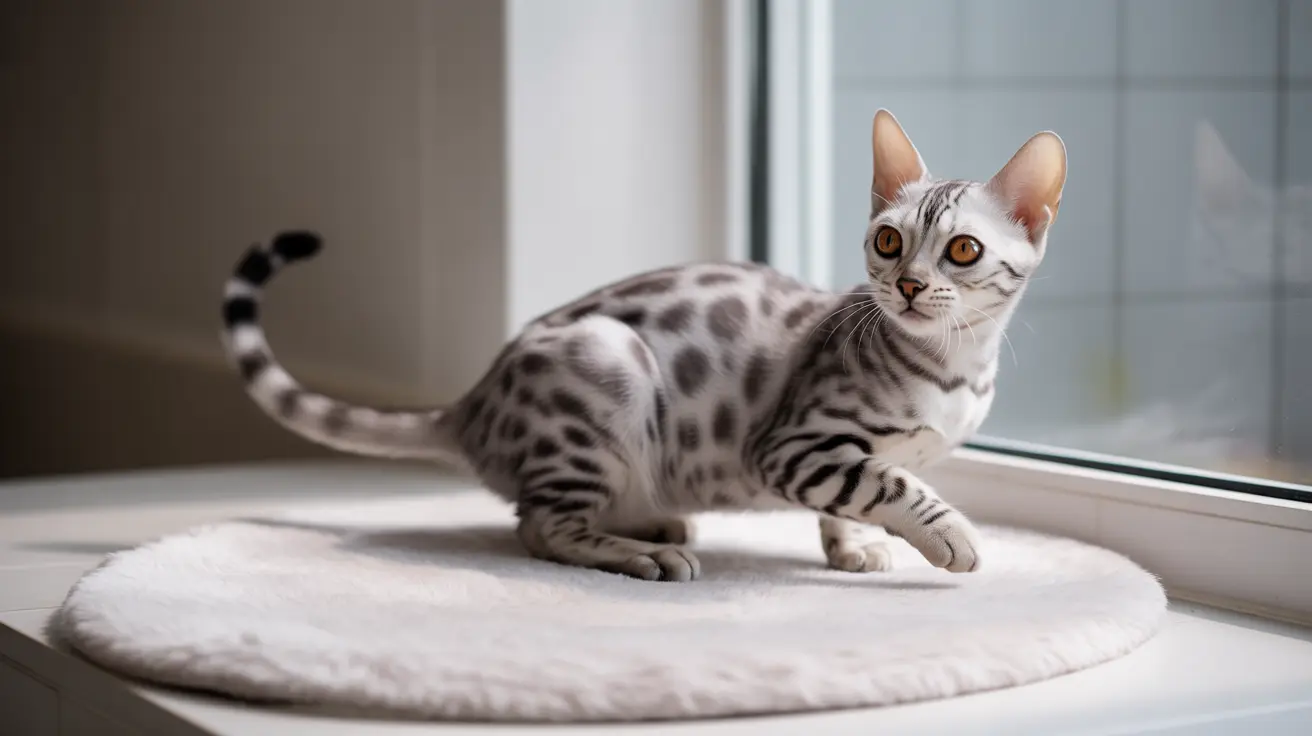Keeping your cat's litter mat clean is an essential part of maintaining a hygienic and odor-free home environment. A well-maintained litter mat not only controls tracking but also ensures your cat's comfort and health. This comprehensive guide will walk you through the most effective methods for cleaning and maintaining your cat's litter mat.
Whether you're dealing with daily maintenance or deep cleaning needs, understanding the proper techniques can significantly extend your mat's lifespan while keeping your home fresh and clean. Let's explore the best practices for litter mat care and maintenance.
Daily Maintenance Essentials
Daily care of your litter mat begins with simple but crucial steps. Start by shaking the mat outdoors or over a trash bin to remove loose litter particles. This prevents buildup and maintains the mat's effectiveness in trapping scattered litter.
For thorough daily cleaning, vacuum the mat using a handheld vacuum or brush attachment. This removes fine dust and hair that simple shaking might miss, helping to maintain optimal hygiene levels between deep cleanings.
Deep Cleaning Process
Preparation and Initial Cleaning
Before beginning the deep cleaning process, remove the litter box and carefully lift the mat to avoid spreading debris. Take the mat outside or to a designated cleaning area where you can work without concern for mess.
Fill a large basin or tub with warm water and add a small amount of mild, unscented dish soap. Avoid using harsh chemicals or strongly scented products that might deter your cat from using the area later.
Washing and Sanitizing
Submerge the mat in the soapy water and use a soft brush or sponge to gently scrub all surfaces, paying special attention to textured areas where litter and debris might collect. For stubborn odors, add a cup of white vinegar to the cleaning solution.
After thorough scrubbing, rinse the mat completely with clean water until no soap residue remains. This step is crucial as any leftover cleaning products could irritate your cat's sensitive paws.
Proper Drying Techniques
Proper drying is essential for preventing mold and bacterial growth. Place the mat in direct sunlight when possible, as UV rays provide natural sanitization. Ensure the mat is completely dry before returning it to its place near the litter box.
Never use a clothes dryer or direct heat sources, as these can damage the mat's material and compromise its effectiveness. Instead, allow for natural air drying, which typically takes several hours.
Special Care for Different Mat Types
Different mat materials require specific care approaches. Rubber and silicone mats can handle more vigorous cleaning, while microfiber mats might need gentler treatment. Always check manufacturer recommendations for your specific mat type.
For double-layer mats, ensure you clean between the layers thoroughly, as these areas can trap significant amounts of litter and debris over time.
Frequently Asked Questions
How often should I clean my cat's litter mat to prevent odor and litter tracking?
Shake and vacuum the mat daily, and perform a deep clean every 2-4 weeks, depending on usage. Homes with multiple cats may require more frequent cleaning.
What is the best way to deep clean a litter mat without damaging its material?
Use warm water with mild, unscented dish soap, and clean gently with a soft brush or sponge. Avoid harsh chemicals and always rinse thoroughly.
Can I put a cat litter mat in the washing machine, or should I hand wash it?
Most litter mats should be hand-washed unless specifically labeled as machine-washable. Check your mat's care instructions before attempting machine washing.
What cleaning products are safe to use on litter mats to avoid irritating my cat?
Use mild, unscented dish soap or specialized pet-safe cleaners. Natural options like vinegar are also safe. Avoid bleach, ammonia, and strong-smelling cleaners.
How can I effectively dry a litter mat to stop odors and bacterial growth?
Air dry the mat completely in direct sunlight when possible. Ensure all parts are thoroughly dry before returning it to use, especially for double-layer mats.
Remember that consistent maintenance of your cat's litter mat is key to maintaining a clean and healthy environment for both you and your feline friend. Regular cleaning not only extends the life of your mat but also ensures it continues to serve its primary purpose of containing litter scatter effectively.






